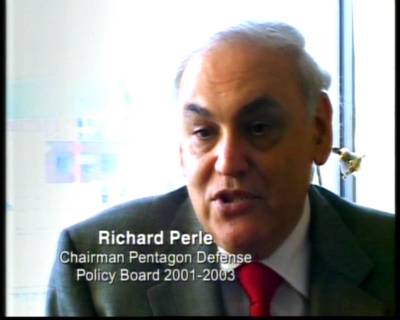BBC News Online have a major story (second story on their UK edition homepage this morning) headlined Police ‘can cope’ with hunt ban, complete with a picture of a ‘toff’ drinking, rather than a more relevant picture, such as a fox or hunting dogs (the use of which is to become illegal). BBC News Online informs us that:
Senior police officers say they have enough resources to deal with the ban on hunting with hounds.
The BBC story is supported with a quote from Suffolk’s Chief Constable, Alastair McWhirter:
Suffolk Chief Constable Alastair McWhirter promised a “proportionate response” to any illegal hunting, adding: “We have been policing hunting for 30 years.”
The Times covers the same story, headlined Hunt ban impossible to enforce, Police say – which informs us that:
THE ban on hunting will be almost impossible to enforce, police chiefs said yesterday, hours after it became law.
Senior lawyers also predicted that the level of proof required for a successful prosecution would be difficult to obtain.
Photographs or a video of riders chasing a fox or deer would be needed to prove that unlawful hunting had taken place.
The Times quotes the same Chief Constable, Alastair McWhirter, but at greater length:
Alastair McWhirter, the Association of Chief Police Officers spokesman on hunting with dogs, said last night that prosecutions would go ahead only if people admitted that they were hunting or if an animal were seen during a chase.
In a statement which will come as blow to supporters of the ban, Mr McWhirter said: “It is not an offence to wear red or pink coats or jackets, it is not an offence to exercise hounds or keep up traditions of using horns or meeting for a ride on horseback on private land.
“Unless someone owns up, you need a wild mammal in the picture to show that someone has committed an offence.”
However, Mr McWhirter later added: “We would enforce it to the best of our ability.”
The Times also quotes some other eminent people, including:
Peter Neyroud, the Chief Constable of Thames Valley, said: “Enforcement is not going to be easy.”
Chief Superintendent Rick Naylor, president of the Superintendents’ Association, said that there would be problems with forces having to deal with mass disobedience.
David Spens, QC, chairman of the Criminal Bar Association, said that the hardest matter would be proving that people intended to go hunting and to break the law.
Courtenay Griffiths, QC, public affairs spokesman for the Bar Council, said: “If there is no proof that people were chasing a fox or a deer, then that will be difficult for the police.
“Without some sort of independent evidence whether that is an affidavit from a witness, electronic, video or photographic evidence, I don’t see how they could bring a prosecution.”
Meanwhile, The Guardian, usually required reading at the BBC, reports that Police fear hunting ban strain:
Police could be stretched to the limit dealing with widespread public disorder following the hunting ban, the leading representative for rank and file officers warned yesterday.
Jan Berry, who chairs the Police Federation in England and Wales, admitted that vociferous opposition to the new law would put huge strain on the resources of small rural forces and create problems for officers on the ground.
At the same time, Alistair McWhirter, the chief constable of Suffolk, said he expected the new laws would be “tried to distraction” in the courts.
“I foresee it being the most tested piece of legislation since the drink driving laws were introduced in 1967,” he said.
There’s that Alastair McWhirter chap again. The Grauniad then goes on to discuss at some length law enforcement contingency planning for dealing with possible widespread civil disobedience and the government/police priority for dealing with this (presumably compared to things like murder, rape, robbery, theft etc.).
It seems clear that, unless The Times and The Guardian have been foolishly making up quotes from a lot of eminent and well connected people, the BBC version of the story is complete spin, selectively taking one quote from Alastair McWhirter that supports their story, whilst omitting entirely any mention of the anticipated difficulties in enforcing the new Hunting with Dogs Act (also known as the Class War Against Toffs/Troops Out of Iraq Now (Alternative) Act).
If you want the news on this subject then do read the articles in The Times and The Guardian (and doubtless in The Telegraph too). If you’re a leftie looking for solace in the face of a possibly pyrrhic parliamentary victory just stick with the BBC.
BBC News Online’s article concludes with these assertions:
Fox-hunting, the main focus of the debate, has been practiced for about 300 years in Britain.
Hunt enthusiasts say the ban infringes their human rights and that it will be a bitter blow to the rural economy.
Opponents have been campaigning for a ban for decades and say the practice is appallingly cruel and unnecessary.
Just for good measure, in contrast to these BBC assertions, we should note here that, according to The Guardian at least, the Act brings “to an end almost 700 years of foxhunting in England and Wales”, that there is more than a little debate (outside of the BBC at least) about the relative cruelty of hunting with dogs vis-a-vis the alternatives, and furthermore, again according to The Guardian, that the ban in Scotland, enacted in 2002, has almost doubled fox kills from 500 to 900 per year and that hunting dogs have fallen from 1,100 to 550, 400 of which were put down.
It almost goes without saying, of course, that the resources of The Times, The Guardian, The Telegraph etc. are available free of charge to UK online readers – in complete contrast to the pathetic and biased BBC News Online coverage that we are dragooned into paying for via the BBC’s Telly Tax.


